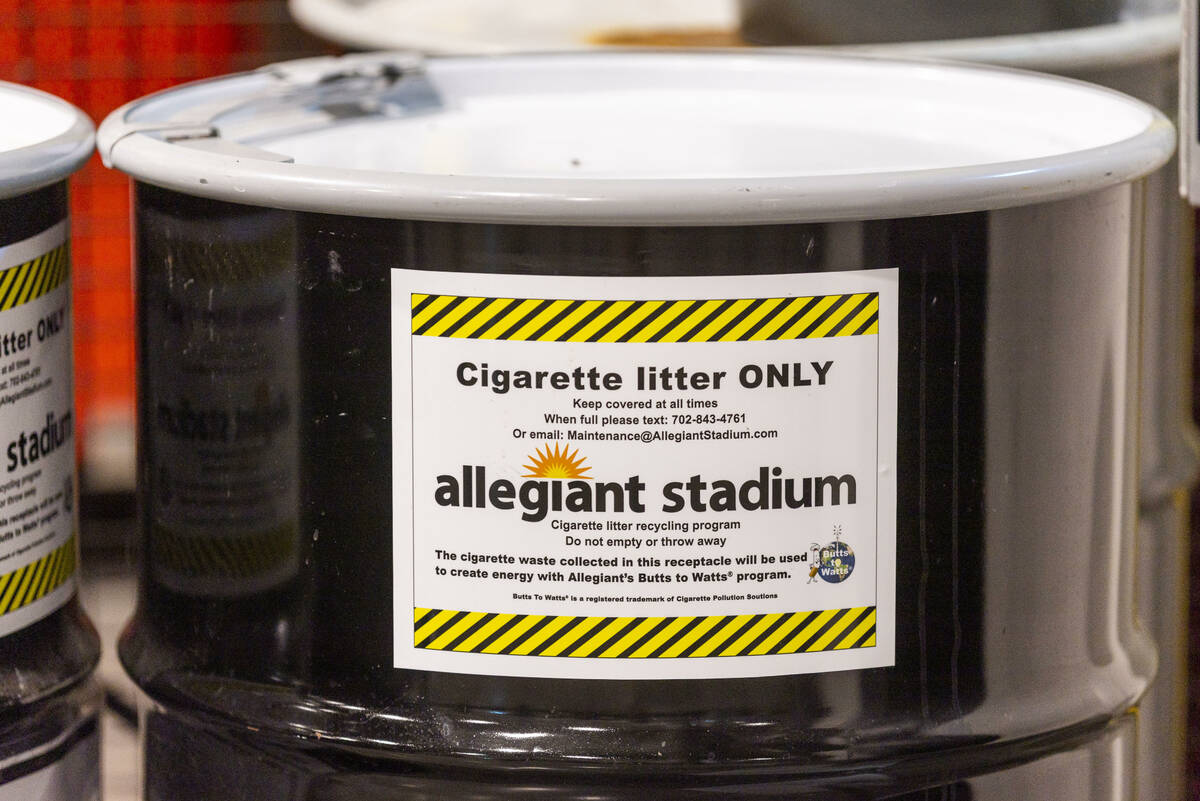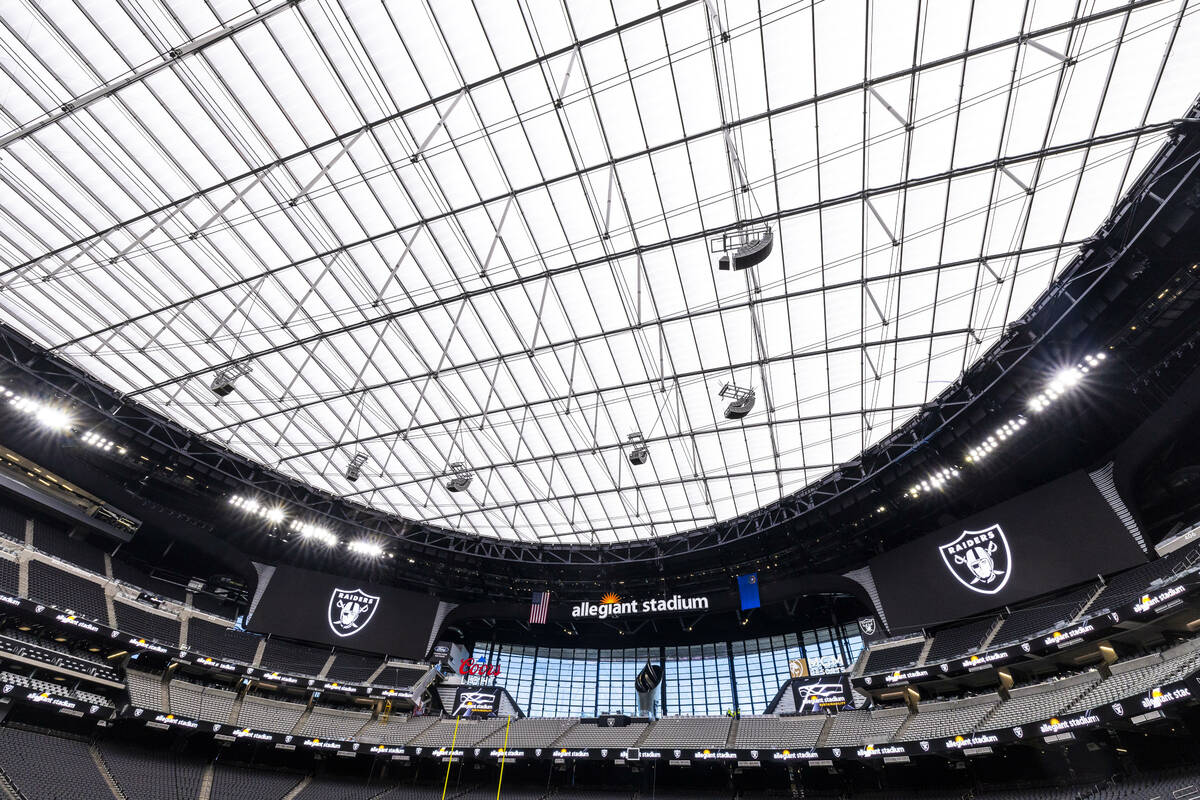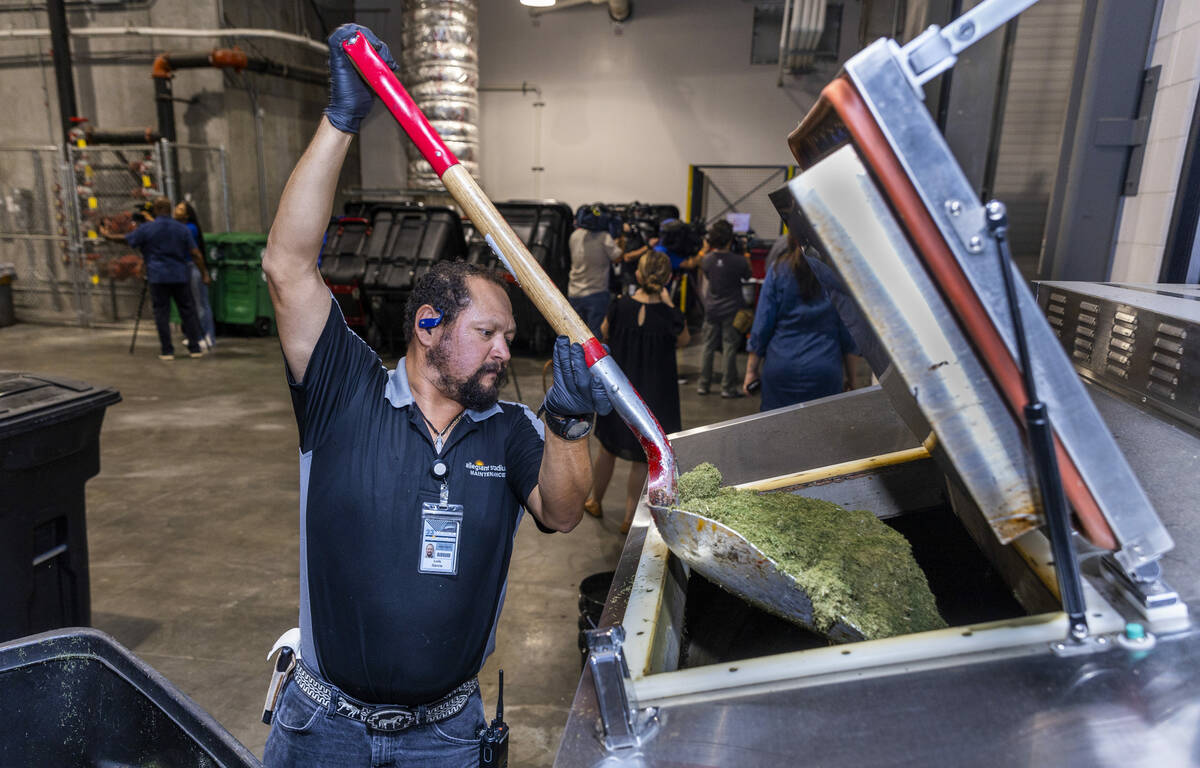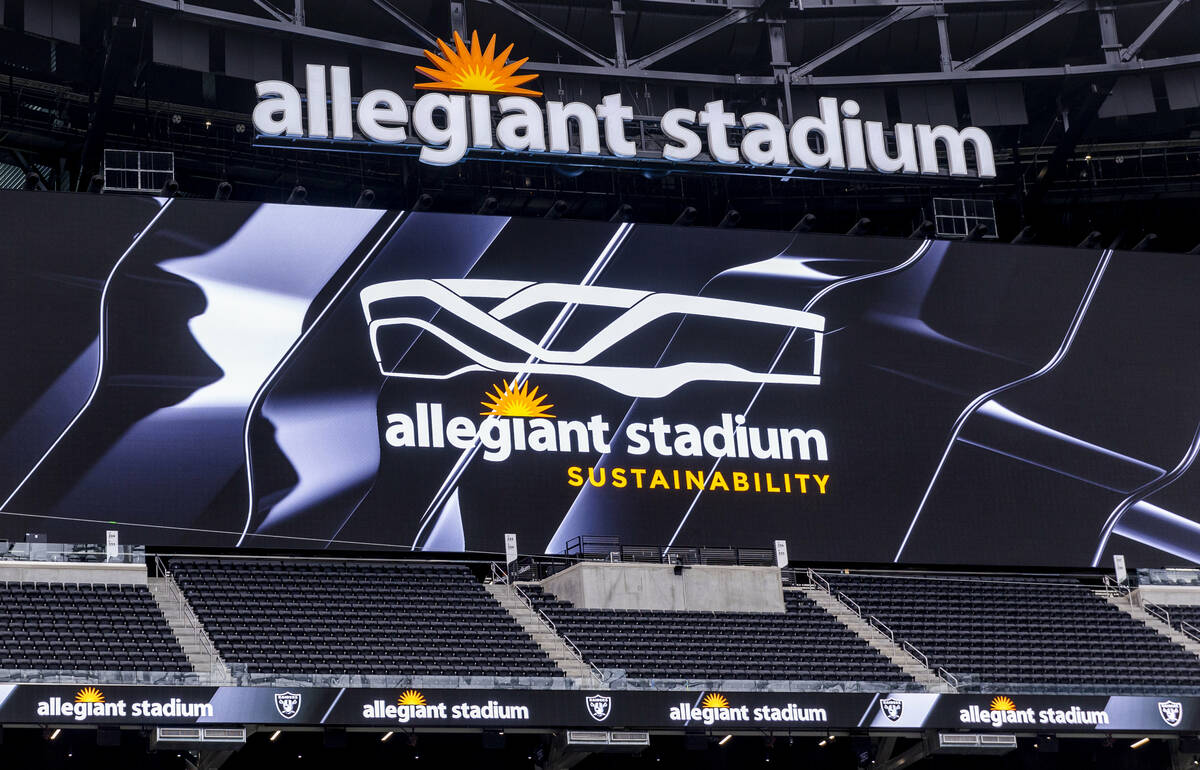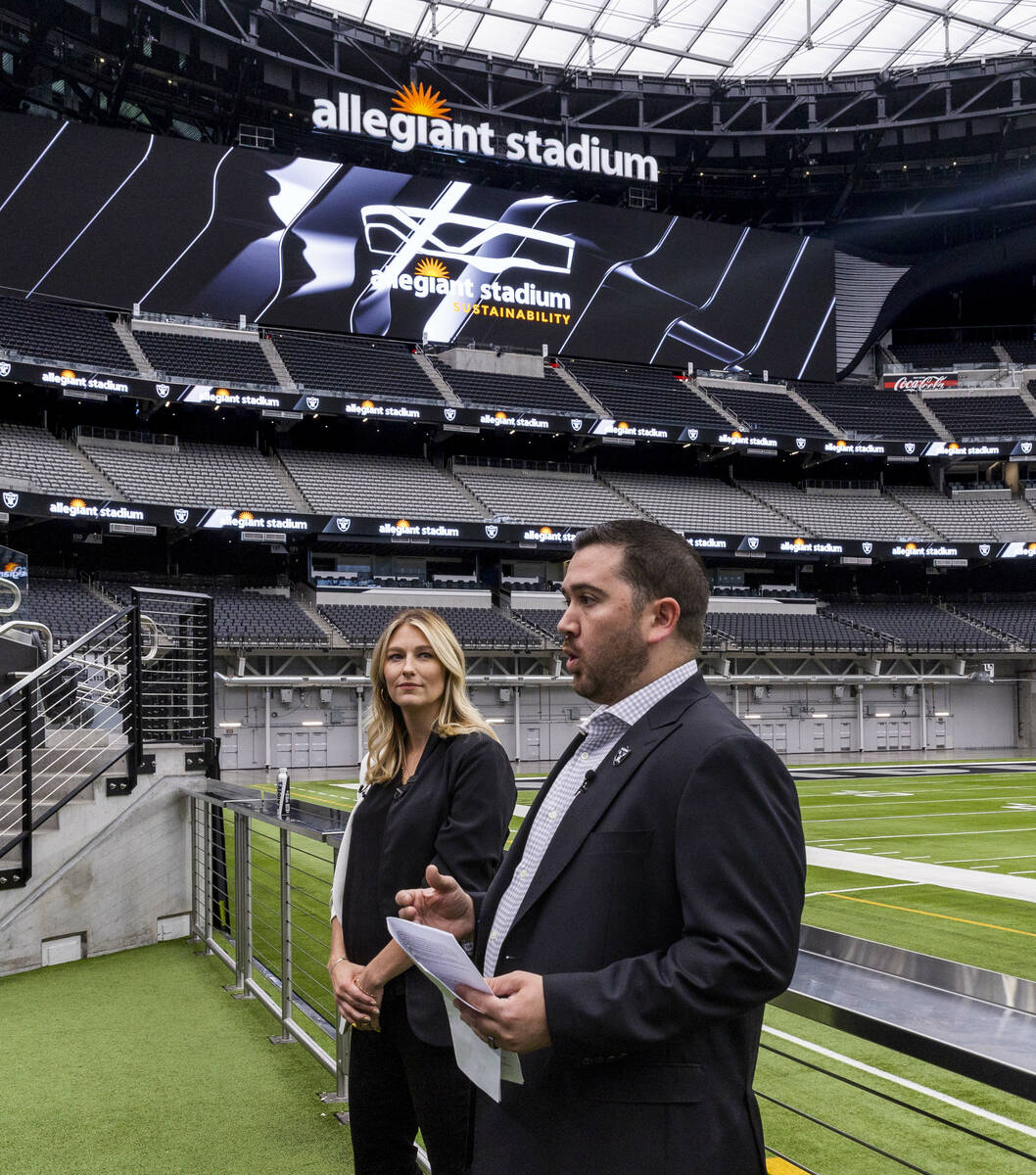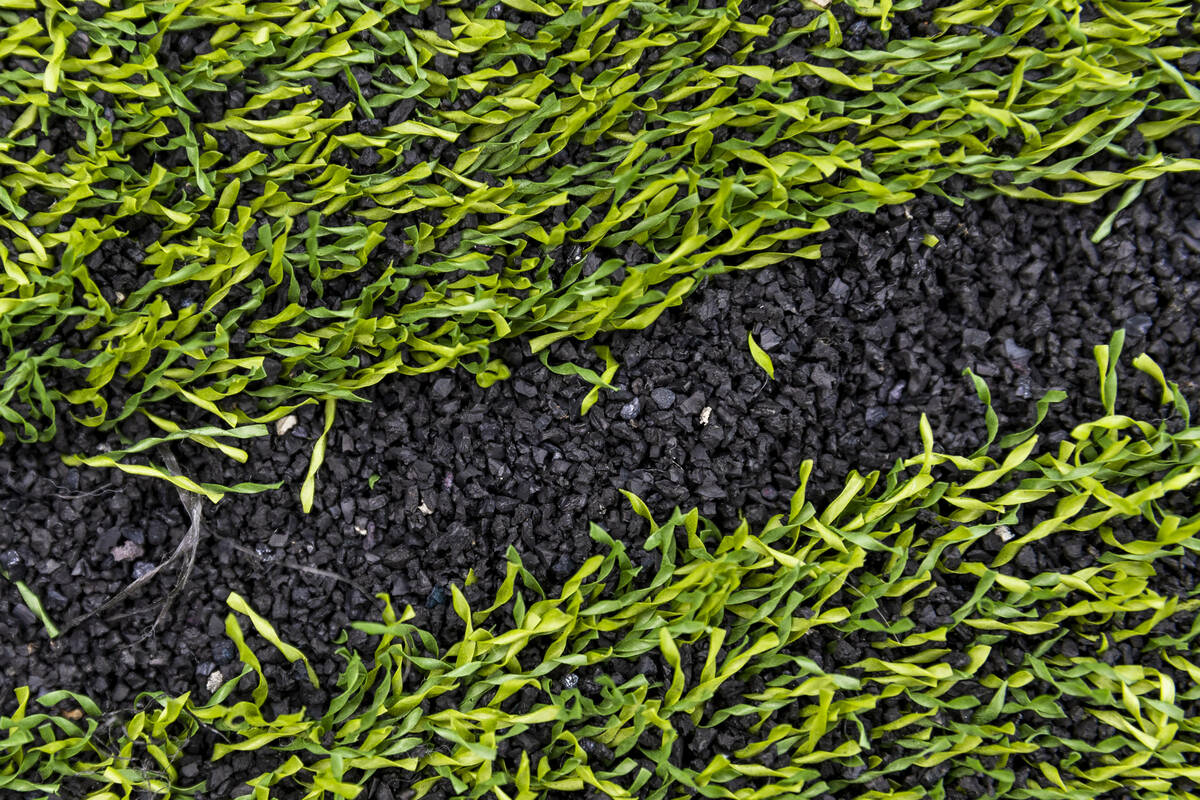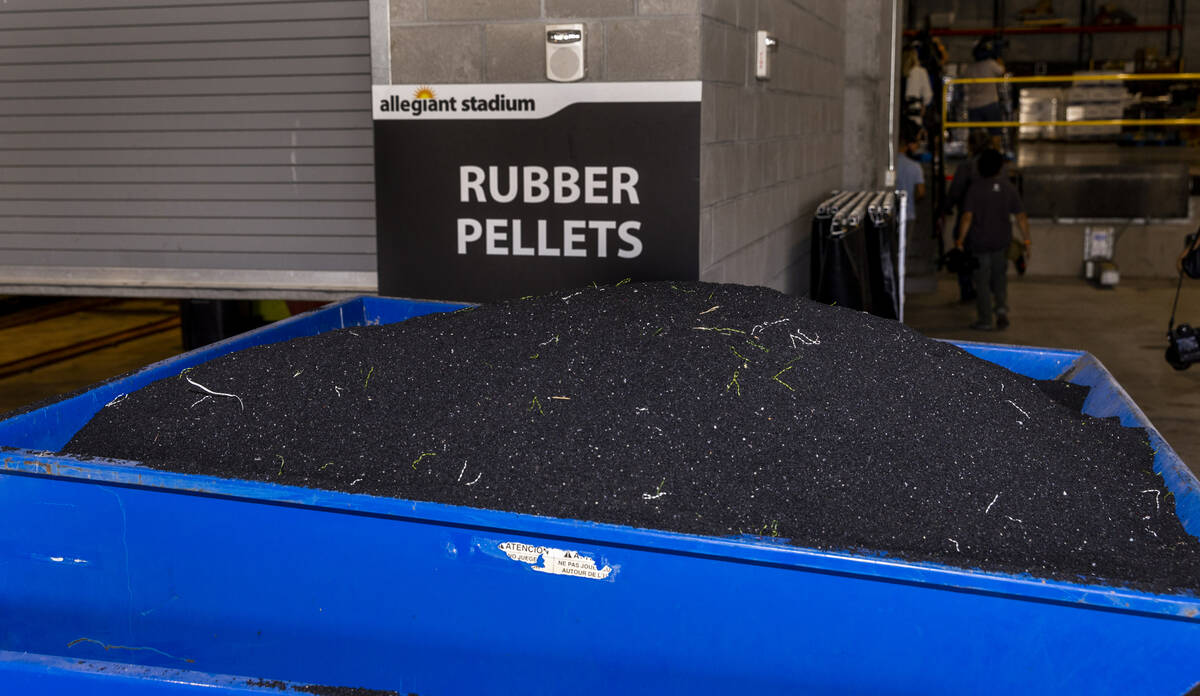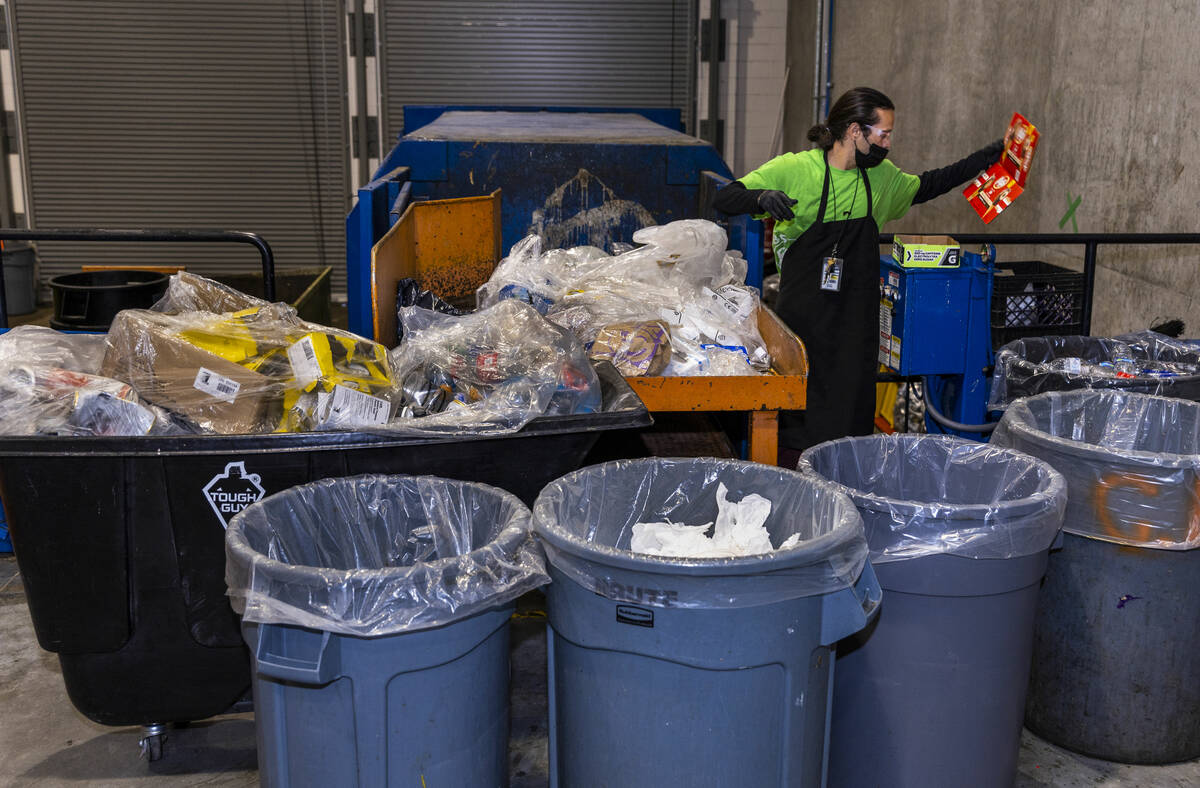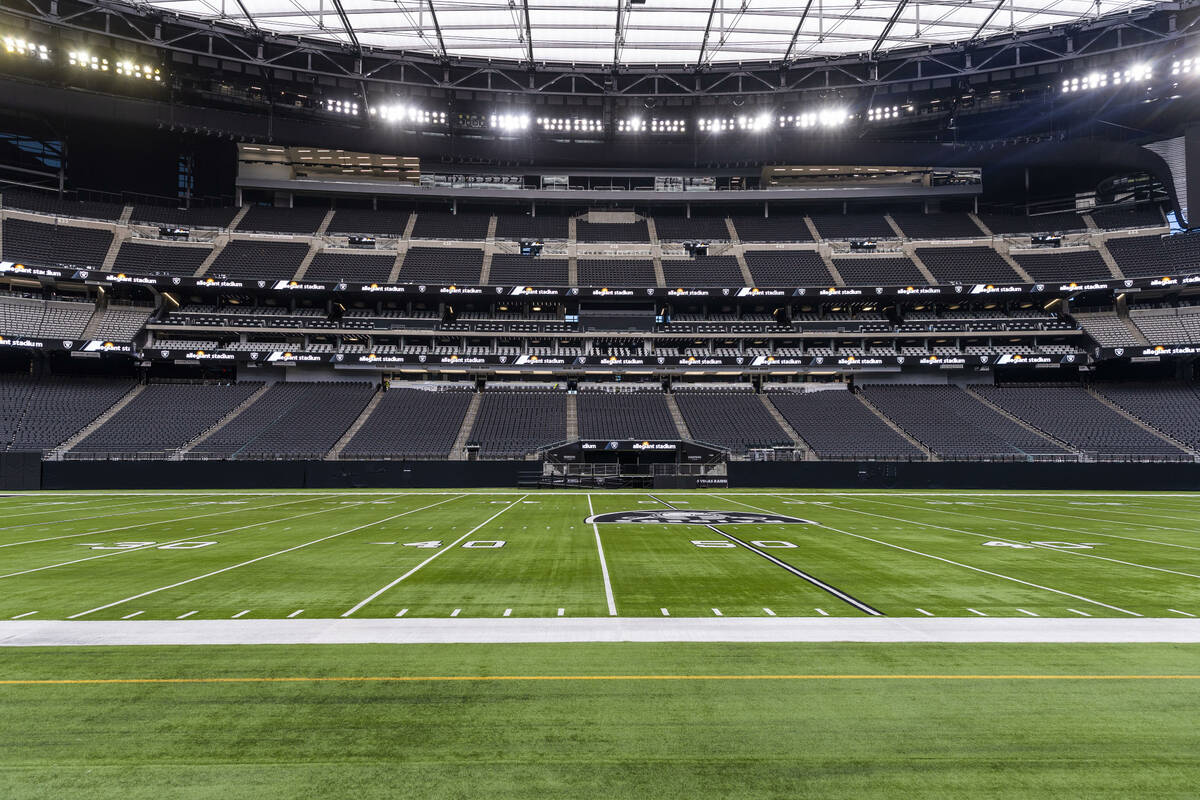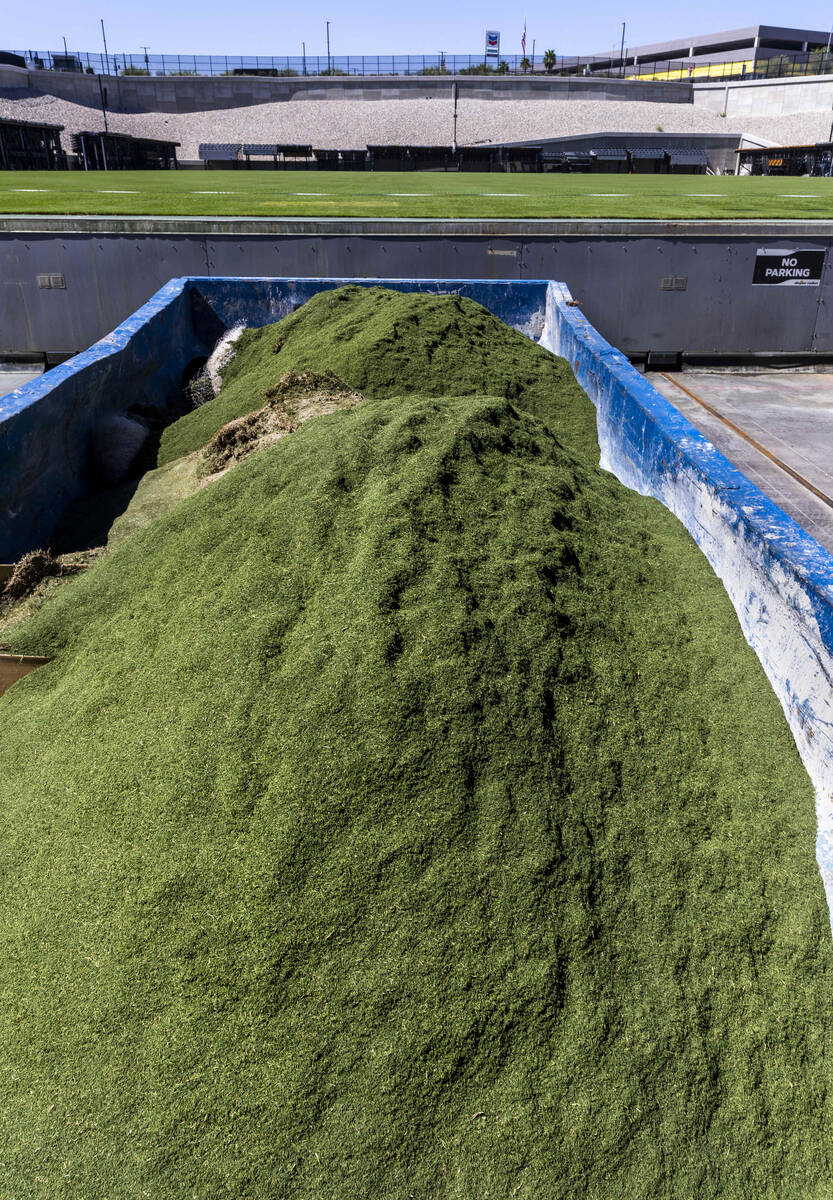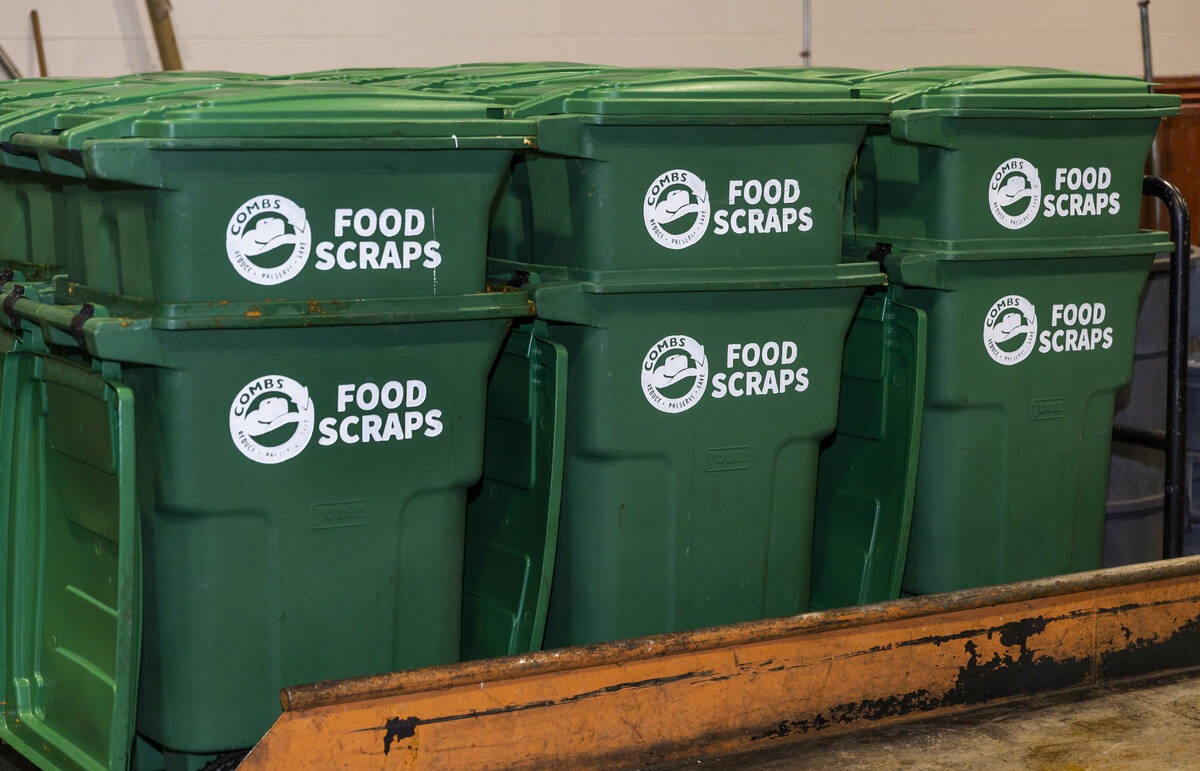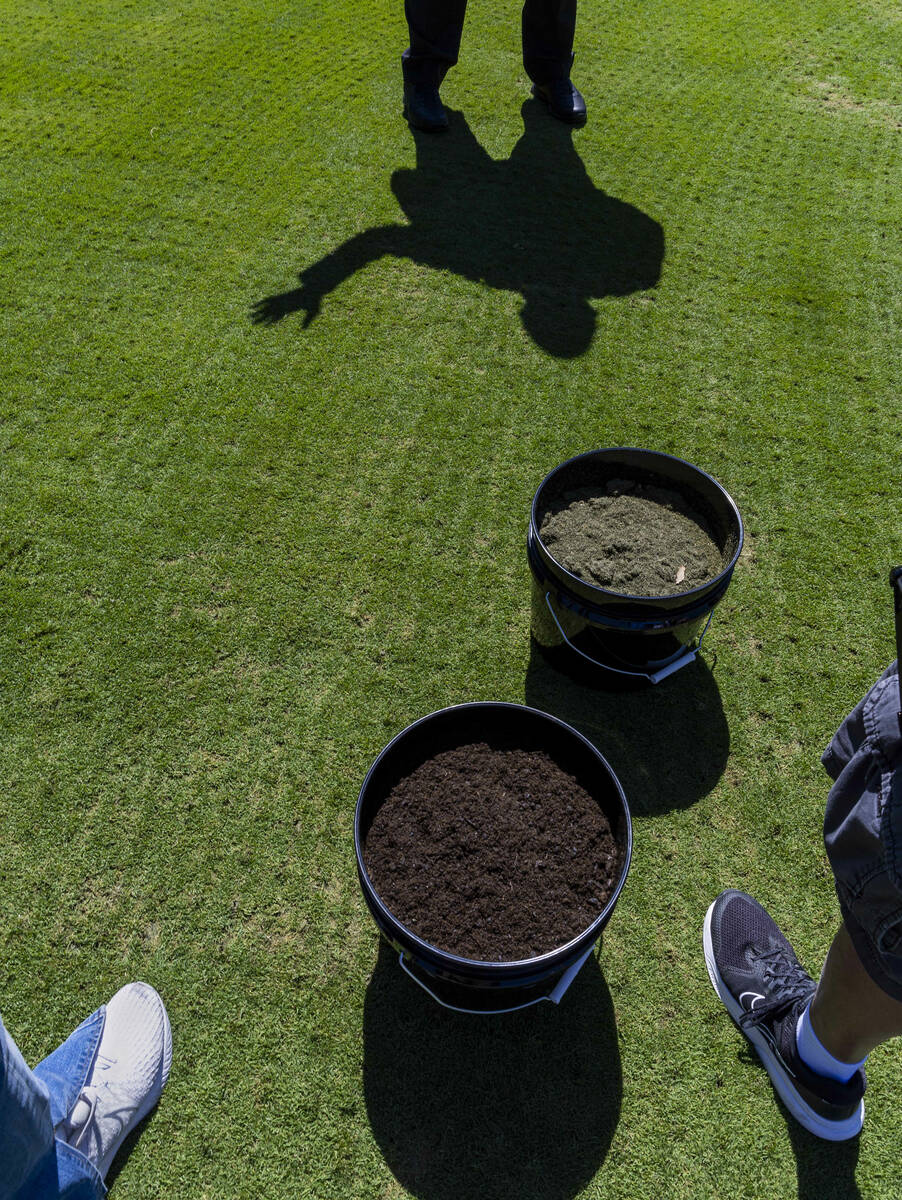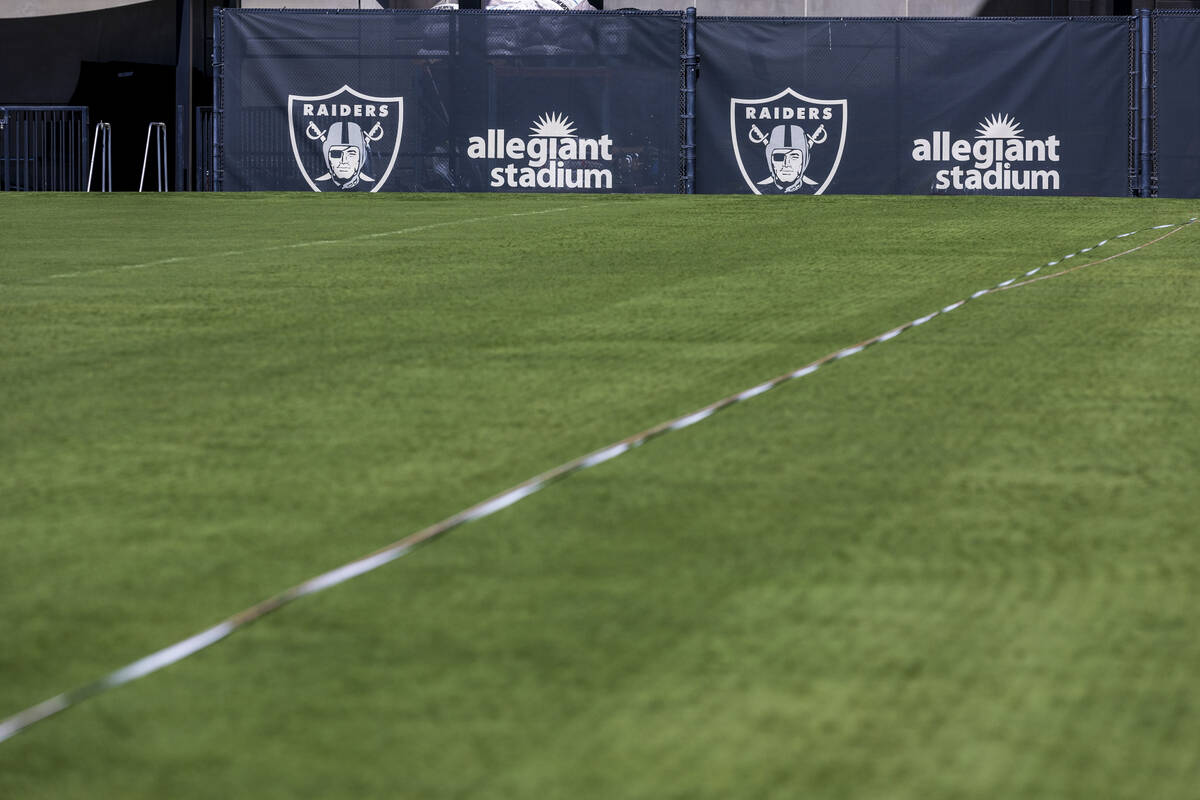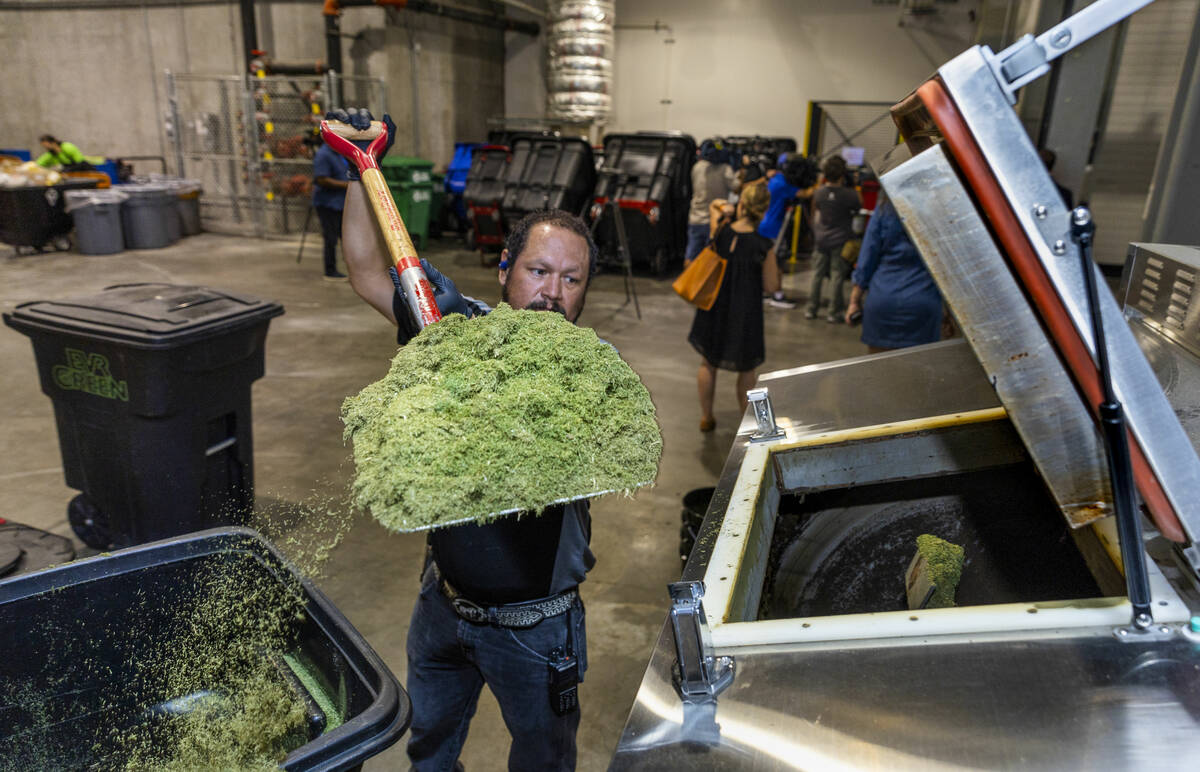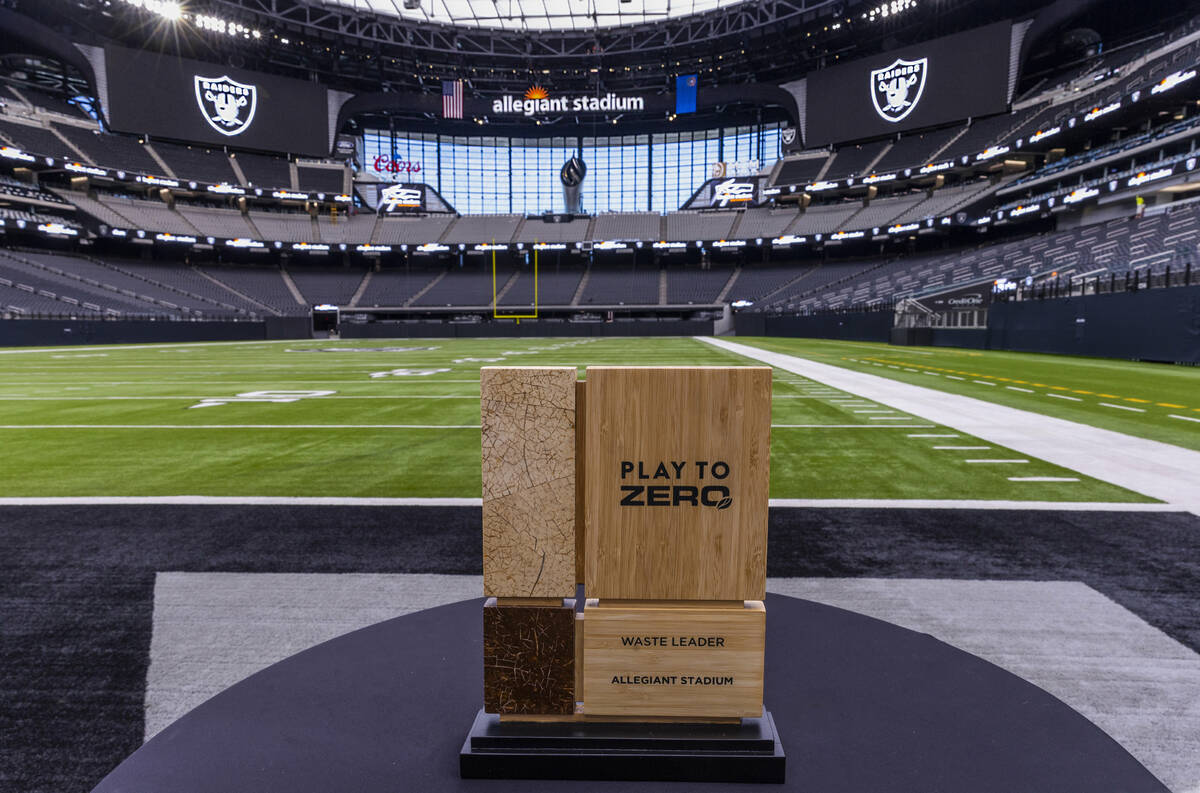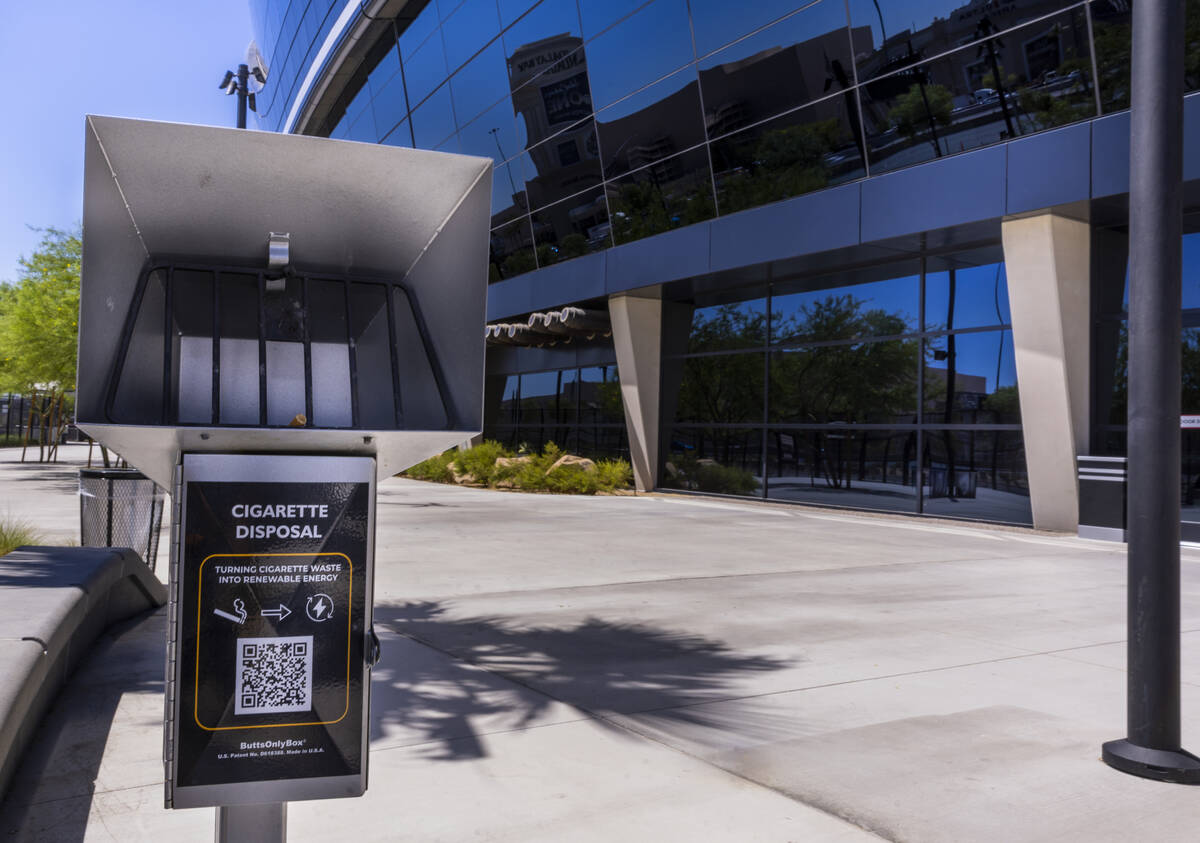Cigarette butts, grass clippings and food scraps: Allegiant Stadium leads in sustainability
Turning cigarette butts into energy is one of the more innovative ways Allegiant Stadium and the Raiders achieved top-tier status for its sustainability efforts.
Allegiant Stadium is just the seventh NFL stadium to achieve LEED gold certification, meaning the building and staff were recognized for their tremendous sustainability efforts.
Since Allegiant Stadium began allowing fans into the building for Raiders games and other events, there have been more than 60,000 watts of energy created from the facility’s cigarette waste-to-energy collection program. That is enough to charge 12,458 cellphones for one hour. Allegiant Stadium is the first NFL facility to include such technology.
The cigarette butts are collected, processed, then put through a combustion chamber, with the ashes collected, and that material is used to create power via a generator.
“When a guest disposes of a cigarette, we collect the waste. It goes through this drum and is processed into energy,” said Samantha Johnson, senior vice president of sales for Allegiant Stadium, who also heads the sustainability program for the facility. “We’re making sure that the cigarettes stay out of the waterway, out of the community and that this waste is properly disposed of and repurposed to energy.”
The stadium utilizes two different fields, a natural grass one that sits on a massive field tray that the Raiders play on and the artificial turf field that UNLV football utilizes. Both fields are also part of the sustainability efforts at the stadium.
During the NFL season, the Raiders’ natural grass field could be mowed up to three times per day, and to not let those grass clippings go to waste, they are repurposed. More than 38 tons have been sent to an offsite composting site, and crews are also now repurposing clippings on site with a biomass machine. The machine can process 650 pounds of material at a time and reduce it into biochar in 18-to-24 hours.
When the field is resodded, the former grass is donated to local farms and used for livestock pads.
Tiny rubber pellets are spread across the artificial field and are vital for the surface’s performance. The team has to remove the pellets after each use, so instead of discarding those pieces of rubber in landfills, crews at Allegiant gather and recycle them. To date there have been more than 50,000 pounds of the pellets recycled.
The stadium collects six tons of food scraps from each large event that is then shipped off to be processed into feed for area livestock. Additionally, 110,000 pounds of food have been donated to local food banks as part of the stadium’s food donation program.
“It really is a team effort … It takes full commitment from the entire operation here to buy into all of these initiatives,” said Chris Sotiropulos, vice president of stadium operations with the Raiders.
Contact Mick Akers at makers@reviewjournal.com or 702-387-2920. Follow @mickakers on Twitter.



